OUR 2022 HIGHLY CITED RESEARCHERS
Since 2001, Clarivate's annual list of Highly Cited Researchers™ identifies global research scientists who have demonstrated exceptional influence – reflected through their publication of multiple papers frequently cited by their peers during the last decade. These highly-cited papers were ranked in the top 1 per cent by citations for their chosen field and year in the Web of Science™.
17 of our A*STAR researchers are recognised as the world's most influential scientific minds in 2022.
A*STAR is proud that our researchers continue to advance research frontiers, and remain influential across multiple fields as demonstrated by our continued strong cross-field performance. Congratulations to all highly cited researchers on this recognition of the scientific impact of their publications and dedication to advancing new knowledge and excellence.
Prof Andy Hor, Deputy Chief Executive (Research)
We learn more about their work and what drives them to push the frontiers of scientific excellence.
Dr Chen Jinmiao
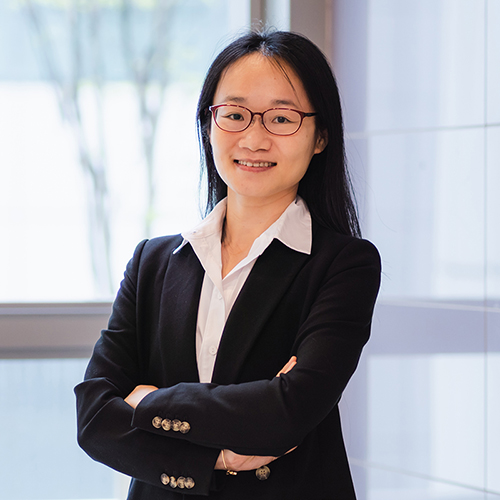
Dr Chen‘s research leverages artificial intelligence (AI) to transform data into meaningful findings to help cancer patients. Her work includes analysing the microenvironment of tumour cells to understand their heterogeneity so scientists can develop therapeutics targeting malignant cells within the tumour.
Dr Chen and her team also developed a database of Deeply Integrated Single-Cell Omics (DISCO) data, an integrated cell atlas with harmonised data, for biologists to analyse, derive and share new findings that benefit the medical community for drug discovery.
Recently, her team developed an AI tool named GraphST that combines graph neural networks with self-supervised contrastive learning to fully exploits spatial transcriptomics data for three key analysis tasks, spatial clustering, multisample integration, and cell-type deconvolution.
She urges young researchers to stay curious, be ambitious about pursuing their passion and expand their knowledge and network through collaboration to develop products that bring greater impact to society.
"I hope to be able to build up a team of competent people across these disciplines to further the development of science."
Dr Florent Ginhoux
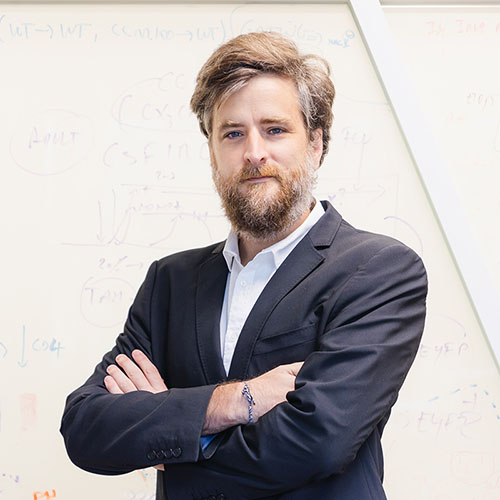
“Dendritic cells (DCs), monocytes and macrophages play crucial and distinct roles in tissue homeostasis and immunity, but also contribute to a broad spectrum of pathologies and are thus attractive therapeutic targets. Potential intervention strategies aiming at manipulation of these cells will require in-depth insights of their origins and the mechanisms that govern their homeostasis.
The focus of our laboratory is to understand the ontogeny of DCs, monocytes and macrophages, their differentiation pathways and how their unique ontogeny dictates their immune functions. Our approach encompasses the integration of high dimensional platforms such as RNAseq, single cell transcriptome analysis using microfluidic RNA sequencing and deep immunophenotypic assessment using state of the art 18 parameters flow cytometry or Cytometry by Time-Of-Flight mass spectrometry (CyTOF). Such high-density molecular profiling at the single level and at unprecedented dimensionality and complexity will provide new insights in the biology of DC, monocyte and macrophage cell populations.”
Dr Florent Ginhoux joined SIgN in 2009 and is currently a Senior Principal Investigator on a joint appointment. He is now a Laboratory Director in Gustave Roussy, Villejuif, France focusing on pediatric cancers and the role of myeloid cells in tumor progression.
Dr Lai Ruenn Chai
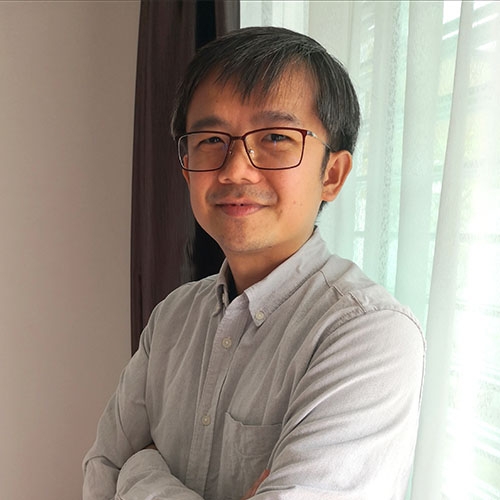
Dr Lai Ruenn Chai, a Principal Scientist at A*STAR Institute of Molecular and Cell Biology (A*STAR IMCB), is also the CEO of two A*STAR spinoffs.
His research focuses on mesenchymal stem cells (MSC) exosomes and their potential impact as the next generation of regenerative medicine for several diseases, including psoriasis, liver, osteoarthritis, and cardiac and lung diseases.
Dr Lai is part of a team that was the first in the world to discover MSC exosomes. He also leads a team in developing proprietary technology to commercialise best-in-class liposome-based skincare products for people with sensitive skin, ageing skin, and conditions like psoriasis.
Dr Lai’s curiosity about the human body led him to a career in science, and he is driven by passion and a keen desire to make an impact on human health.
Prof Chen Xiaodong
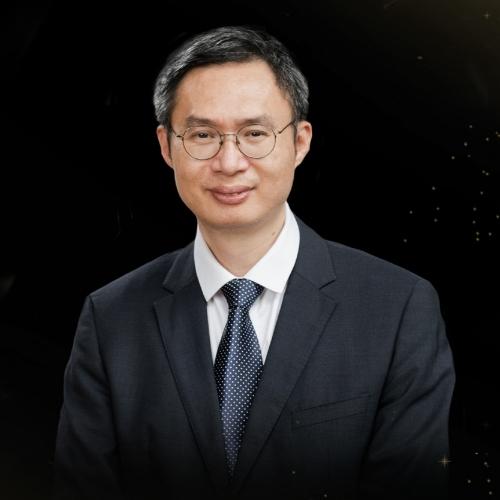
Professor Chen Xiaodong specialises in mechano-materials science and engineering, developing soft materials for potential wide-ranging applications in flexible wearable technology, soft robotics, and biomedical devices.
Trained in physical chemistry from the Chinese Academy of Sciences, with a PhD in biochemistry from the University of Münster, Germany, Prof Chen has nearly 400 high-profile publications and over 50 patents to his name. He is currently the President’s Chair Professor in Materials Science and Engineering, Professor of Chemistry, and Professor of Medicine at Nanyang Technological University, Singapore. He also holds joint appointments as the Director of Innovative Centre for Flexible Devices (iFLEX) at NTU and as the Director of Max Planck-NTU Joint Lab for Artificial Senses.
Prof Nick Barker
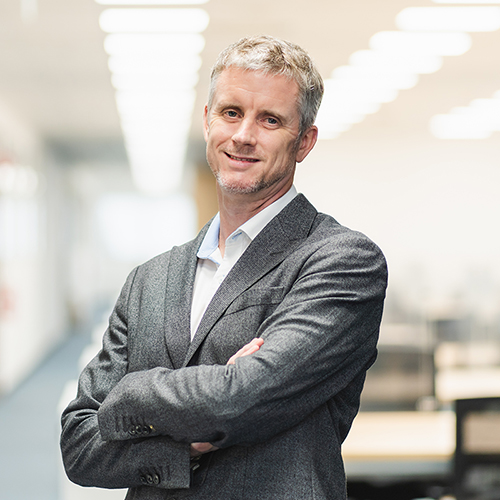
Prof Nick Barker’s research focuses on developing novel cancer treatments targeting tumour-resident stem cell populations responsible for driving cancer progression. Following his pioneering work on Lgr5 as a marker of multiple stem cell populations throughout the body, he recently discovered Aquaporin-5 (AQP5) as a surface marker of gastric stem cells. This discovery has led to isolating human gastric stem cells from healthy tissues and cancers for the first time using antibodies.
Using advanced experimental models, including cultured organoids derived from human tumour cells, that accurately mimic patient cancers, Prof Barker and his team are deciphering the contributions of gastric stem cells to stomach cancer development, revealing novel opportunities for developing more effective treatment options in the clinic.
“Ten years ago, precision medicine was probably unthinkable. Now, it’s a reality,” says Prof Barker, citing advances in DNA sequencing and gene expression profiling as key to understanding the underlying mechanisms driving cancer.
As cancer presents differently in patients, understanding each patient’s genetic and epigenetic makeup through DNA sequencing and profiling allows doctors and scientists to match drugs and treatment options that are the most appropriate.
Dr Ng Lai Guan
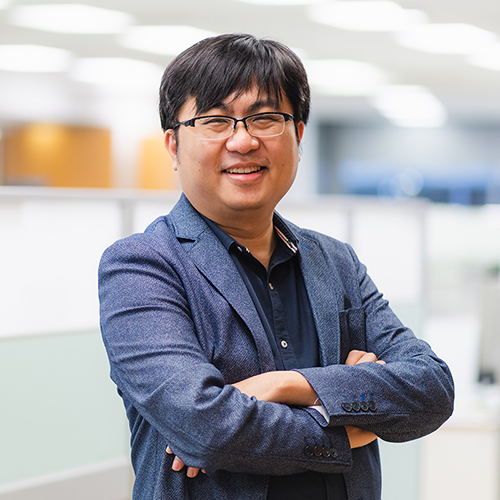
“My research focuses on the study of myeloid cell dynamics and their heterogeneity, with a specific focus on neutrophils. In particular, we employ the use of advanced microscopy techniques such as multi-photon microscopy and light-sheet microscopy, to examine the cellular dynamics and spatial behaviour of immune cells.
Our imaging data has provided important clues about the functional heterogeneity of myeloid cells as they were observed to have different cellular behaviour depending on the tissue micro-environment. These findings have since driven my interest towards the study of heterogeneity among myeloid cells by concurrently examining their developmental pathway and tissue origin, as I believe that these two factors confer their heterogeneity.”
Dr Ng Lai Guan is a Principal Investigator at A*STAR SIgN. Following his postdoctoral training, he joined A*STAR SIgN in 2009 to establish his own laboratory. He is now Adjunct Associate Professor at the National University of Singapore. Dr Ng has also been appointed as an Adjunct Investigator at the National Cancer Centre Singapore, and more recently he has taken up an Adjunct Investigator position with the National Skin Centre Singapore.
Dr Lim Sai Kiang
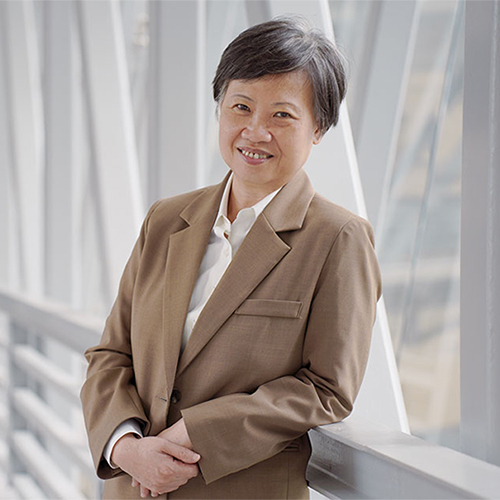
Dr Lim’s research focuses on mesenchymal stem cells (MSC) exosomes, which she and her PhD student discovered 10 years ago, and are now translating these exosomes into new treatments for diseases such as osteoarthritis, psoriasis ophthalmic disorders and cardiovascular diseases. She believes that MSC exosomes have the potential to be both a therapeutic agent and a drug delivery vehicle.
Dr Lim is also the founder of two A*STAR spin-offs, focusing on exosomes for regenerative medicine and liposomes for skincare.
Dr Lim is also very active in the global exosome community, and is frequently invited as a plenary and keynote speaker to major scientific meetings to share her knowledge and passion. She also organises workshops, forums, and discussion panels to promote international collaboration.
“I’ve been very involved in getting the global exosome community to agree on international manufacturing standards. The process must be rigorous, and we meet to identify problems, take stock and work on the next steps.”
Dr Seh Zhi Wei
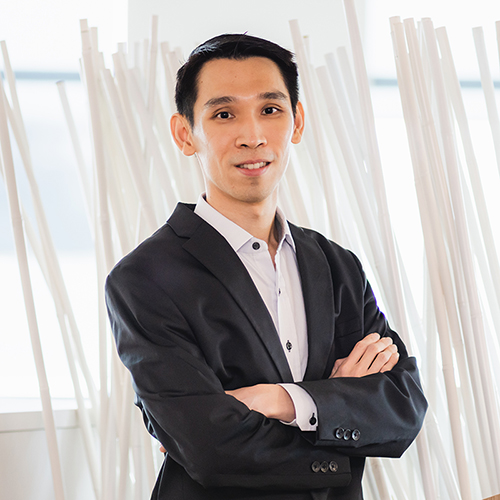
“Lithium-ion batteries today are reaching their theoretical energy limits. To overcome these limits, my team works on next-generation sodium-, magnesium- and aluminum-ion batteries, which can offer higher energy density and/or lower cost due to the different material chemistries. For example, a magnesium ion carries twice the charge of a lithium ion, which means that a magnesium battery has twice the charge capacity of its lithium counterpart and can last twice as long on a single charge. By combining experiment and theory, we design novel battery materials (cathode, anode, electrolyte), understand structure-property relationships, and construct battery prototypes. These advanced batteries can be used to power both stationary and electromobile applications for a sustainable energy future.”
Dr Seh Zhi Wei is a Senior Scientist at A*STAR IMRE. Dr Seh’s research interests lie in the design of new materials for energy storage and conversion, and he is widely recognized for designing the first yolk-shell nanostructure in lithium-sulfur batteries, which is currently a licensed technology. Dr Seh has published in many top journals such as Science, Science Advances, Nature Energy, Nature Materials, Nature Reviews Materials, Nature Catalysis, Nature Machine Intelligence, Nature Synthesis, and Nature Communications. For his research achievements, he also received awards including Highly Cited Researchers, World’s Top 2% Scientists, Central Research Fund Award, Vebleo Fellow Award, Ten Outstanding Young Persons, Emerging Investigators, Singapore NRF Fellowship, Innovators under 35 Asia, MRS Graduate Student Award, and National Science Scholarship.
Dr Subhra K. Biswas
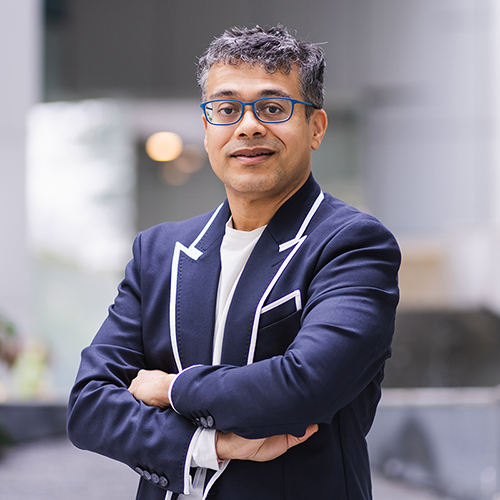
“My research at A*STAR focuses on a class of cells (called Monocytes and Macrophages) that forms the first line of defence of our immune system, helps in wound healing and other key physiological activities. Any defects in these cells can contribute to diseases such as uncontrolled infection, cancer or obesity/diabetes. Through our work, we identify the mechanisms that drive these defects so as to find ways to 're-program’ these cells to check disease progression.
Typically, we use a combination of deep immunoprofiling, mechanistic studies in ex vivo human disease cohorts and in vivo in preclinical mouse models to identify dysregulated immune-signatures related to the disease (biomarkers) and discovery of potential targets thereof to modulate disease progression.”
Dr Subhra K. Biswas first joined A*STAR in 2005 as the Research Scientist (In-Charge) of the Cell Interaction group in the A*STAR Bioinformatics Institute. In 2007, he moved to the A*STAR SIgN as a Principal Investigator, where he still heads the Human Innate Immunity Lab. Dr Biswas has held adjunct associate professor positions at the Department of Microbiology, National University of Singapore and LKC School of Medicine, Nanyang Technological University, Singapore and Visiting Professor at Humanitas University, Milan, Italy. He holds a joint research position at National Cancer Centre Singapore.
Prof John Wang
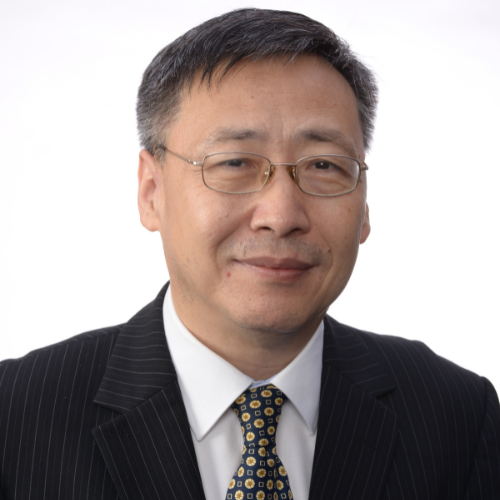
Energy, environment and sustainability are among the most urgent issues faced by human civilization in the 21st century. We are taking the “Materials-enabling” approaches to address them. For energy storage, we are developing batteries going much beyond lithium ion batteries in terms of much better performance, lower cost and higher recyclability. In various energy conversion processes, advanced catalysts are the keys to their success. For water and clean environment, we are working on the new-generation membranes and technologies for both liquid and gas separations.
Professor John Wang holds joint appointment (25%) as Principal Scientist II in the A*STAR Institute of Materials Research and Engineering, (A*STAR IMRE), A*Star. He is Professor of Materials Science and Engineering at the National University of Singapore (NUS). He served as the Head of Department of Materials Science and Engineering at NUS for two terms. Professor John Wang has published >500 papers in prestigious, top international refereed journals, and citations received is >34,000 (H-index = 95). He has been Clarivate Highly Cited Researcher for the past two consecutive years (2020 and 2021). Professor John Wang is elected Academician of the Asia Pacific Academy of Materials (APAM), Fellow of the Institute of Materials, Minerals and Mining (IOM3, UK), Fellow of the Royal Society of Chemistry, Fellow of the Academy of Engineering Singapore, and Fellow of the Singapore National Academy of Science (SNAS).
Prof Zhang Yong-Wei
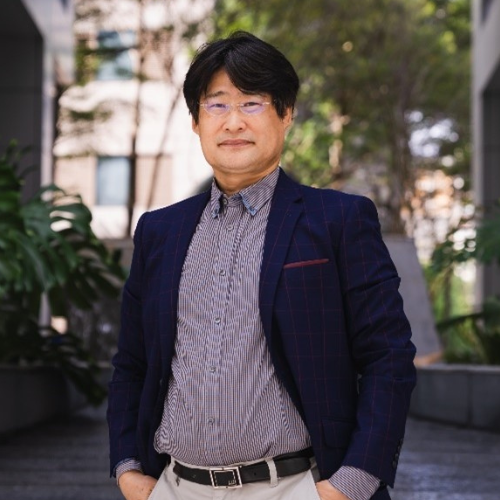
Prof Zhang's research focuses on developing/deploying multiscale modelling and simulation methods in combination with artificial intelligence (AI) to understand the processing-structure-property relationship of materials. Prof Zhang's work is at the forefronts of scientific discovery and Industry 4.0, where he leverages computation, big data and AI to transform materials discovery, design and manufacturing, be faster, more efficient and greener.
He also champions green energy research, which includes exploring ways to convert carbon dioxide into fuels and useful products and collaborating with NUS to develop safer and greener solid-state electrolyte lithium batteries to power EVs, smartphones, and aeroplanes.
Prof Zhang believes that curiosity is the key to success in every scientist.
"My work has always been driven by passion and curiosity. It is important for scientists to stay curious as this keeps us going to learn and uncover new things," Prof Zhang says.
Prof Laurent Rénia
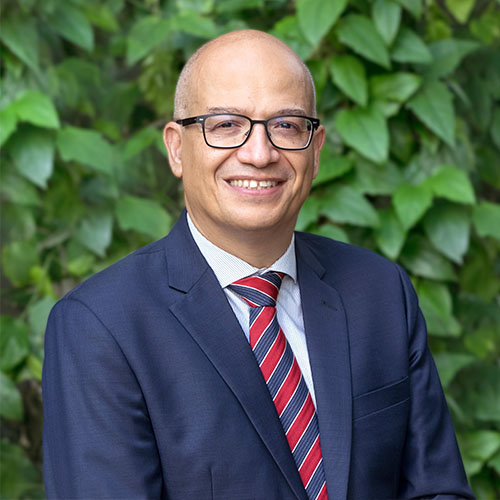
“Infectious diseases represent a never-ending threat to Singapore and the rest of the world with the recent epidemics/outbreaks of SARS-CoV-2, vector-borne diseases (Chikungunya, Dengue, Zika, malaria) and the spread of bacteria resistant to all known antibiotics. They have serious consequences on population health and economy, and for most, there are no licensed vaccines for protection, and either no new drugs or a limited number of drugs for treatment. My scientific interests cover the immunology of infectious diseases, in particular mosquito-borne diseases and newly emerging viruses like (SARS-CoV-2). My research focuses on the development of new immunological, assays and concepts, as well as animal models, that can be used to study communicable and non-communicable diseases, such as cancer.”
Prof Laurent Rénia first joined A*STAR as a Senior Principal Investigator at the A*STAR Singapore Immunology Network (A*STAR SIgN) in 2007. He was its Executive Director from 2013 to 2020. In 2020, he founded the A*STAR Infectious Disease Labs as its Executive Director from 2020 to 2021. In 2021, he is now an A*STAR Senior Fellow and has taken a joint position as Professor of Infectious Diseases and Director of the Respiratory and Infectious Diseases Programme at the Lee Kong Chian School of Medicine, and in the School of Biological Sciences, Nanyang Technological University.
Dr Gan Renyou
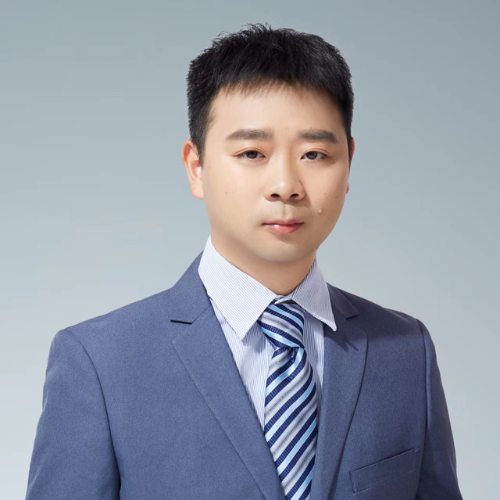
Dr Gan’s research focuses on developing probiotics and functional food ingredients to promote better health of people. His work identifies probiotic candidate strains from fermented foods and gut microbiota to investigate their potential. While the 30 by 30 goal aims to produce 30% of Singapore’s nutritional needs locally by 2030, the Singapore Food Story (SFS) programme has an expanded scope to improve the nutritional quality of our food, including development of future foods.
With the rise in consumer awareness of healthier food choices, his research has become more exciting, especially in making functional food more accessible and affordable.
Dr Gan believes that genuine interest and a passion to understand the science of food play an important role in achieving his goal.
“When you encounter roadblocks in your research journey, be confident, be true to yourself, and keep persevering.”
Prof Liu Xiaogang
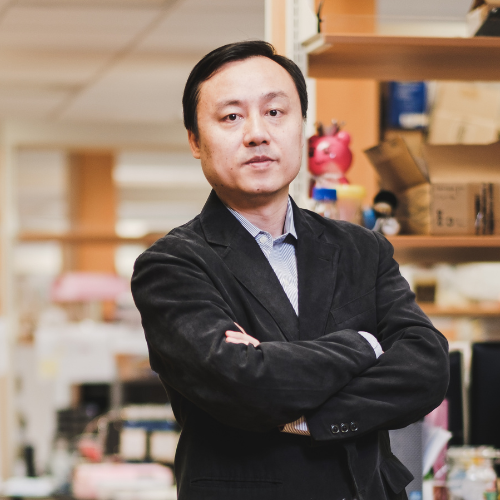
“Various assistive technologies such as voice recognition, eye tracking and brain-computer interfaces have been developed in recent years to help people – especially those with limited dexterity or neurological disorders – control electronic devices. However, these technologies have limitations associated with environmental interference, control accuracy, cost and maintenance.
We are currently developing a smart mouthguard containing integrated pressure sensors to detect occlusal patterns. These patterns are translated into data inputs with 98% accuracy, and can be used to control computers, smartphones and wheelchairs.”
Dr Yang Yi Yan
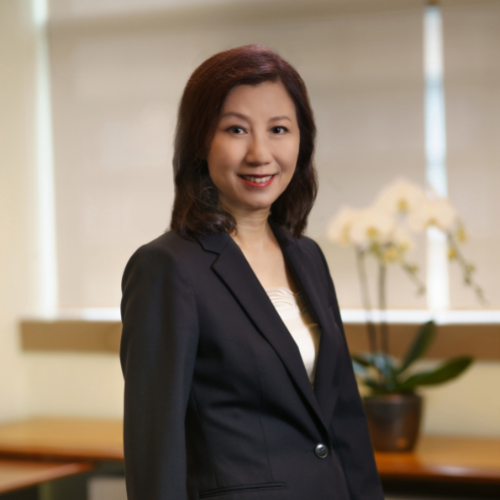
The research of my lab is currently focused on precision nanomedicine. Effective delivery is critical to successful clinical application of nucleic acid therapeutics or vaccines. We develop bioresorbable nanocarriers to transport therapeutic (e.g. nucleic acids, antimicrobial peptide mimetics) or vaccine cargos to specific cell types for highly targeted therapies of cancer and infectious disease. Specifically, we make and screen libraries of nanocarriers from synthetic and natural lipids, polypeptides or other biomaterials for targeted delivery of various therapeutics and vaccines. The nanocarriers are prepared by using microfluidic devices with desirable properties such as high cargo loading efficiency, nanosize, narrow size distribution and defined surface chemistry.
We use small molecules, peptides, antibodies or cell membrane and coat them on the surface of the nanocarriers as biological signals that recognize the surface of specific cell type. The cargos are loaded inside the nanocarriers through covalent or strong non-covalent interactions to prevent leaching of the cargos in the blood circulation. To maximize therapeutic efficacy and minimize off-target toxicity, we incorporate mechanism, which triggers release of the encapsulated cargos in the specific cellular compartments or tissues, in the design of the nanocarriers through biophysical or chemical means. The technologies that we are developing may enable precision medicine and thus revolutionize the way we treat disease.
Prof Alex Yan Qingyu
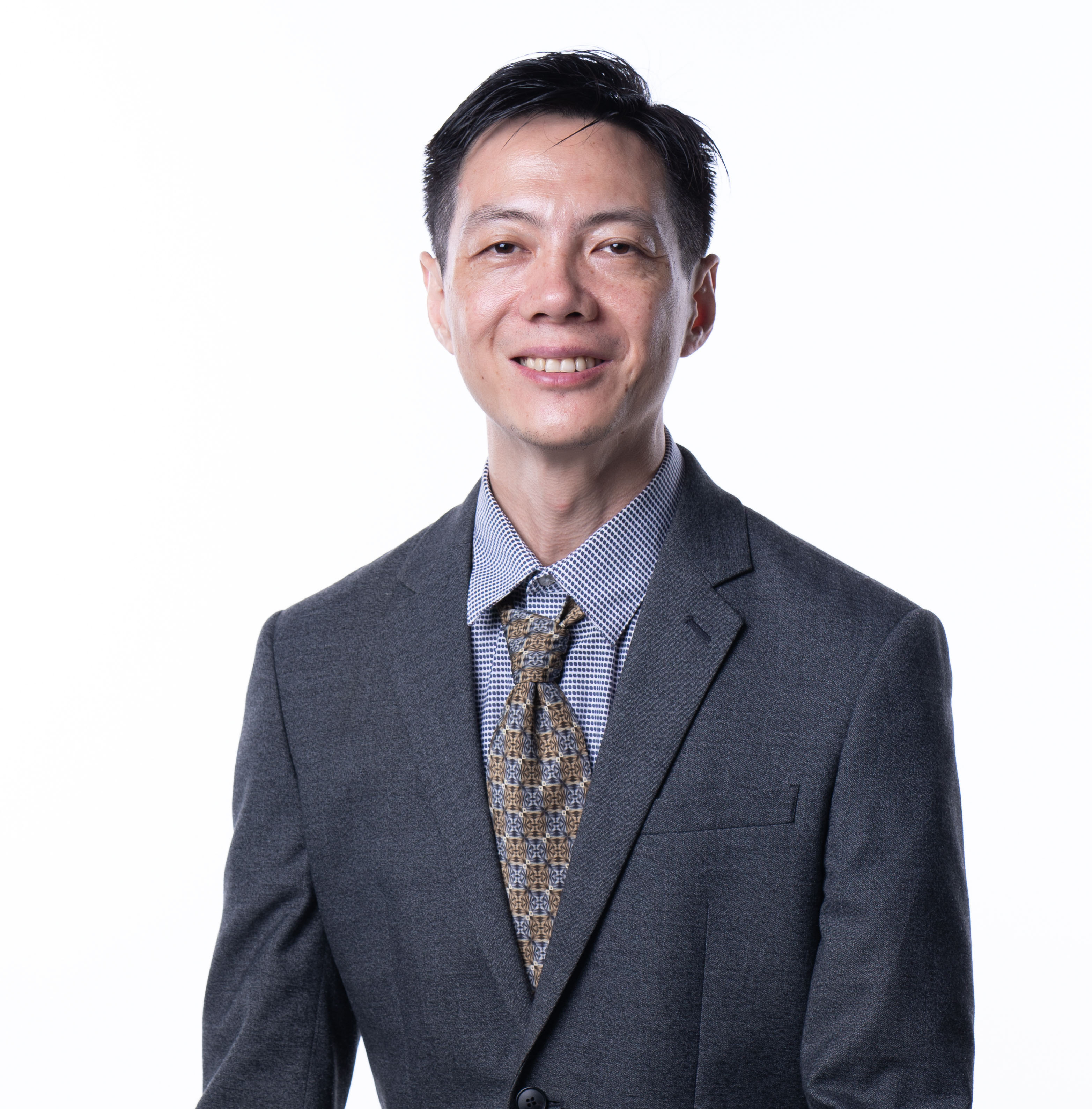
“Currently, lithium-ion batteries (LIBs) dominate the portable powers for electronics and electric vehicles (EVs). However, their sustainability is largely limited by the safety issues associated with flammable organic electrolytes, and the supply shortages of Li resources. The Rechargeable aqueous aluminium metal batteries (AAMBs) are expected to show many advantages compared to the Li ion batteries (LIBs) with higher volumetric energy density, lower cost and better safety. The high abundancy and easy accessibility of aluminium raw materials further make AAMBs appealing for grid-scale energy storage. However, the passivating oxide film formation and hydrogen side reactions at the aluminium anode, as well as limited availability of cathode lead to low discharge voltage and poor cycling stability.
We are working on developing new anode, cathode, and electrolyte for the AAMBs to bring a safe, low-cost and environmentally friendly rechargeable battery, which can meet the rapid increasing demands for energy storage devices”
Professor Alex Yan Qingyu is currently a Professor at the Nanyang Technological University (NTU) and a Principal Scientist II at A*STAR Institute of Materials Research and Engineering (A*STAR IMRE). Prof. Yan obtained his BA from the Materials Science and Engineering Department of Nanjing University, China, in 1999. He finished his Ph.D. in the Materials Science and Engineering Department of the State University of New York at Stony Brook in 2004. After that, he joined the Materials Science and Engineering Department of Rensselaer Polytechnic Institute as a postdoctoral research associate until joining Nanyang Technological University in 2007. His current research interests are battery development, thermoelectric materials, and electrocatalytic process for energy conversion.
Dr Xi Shibo
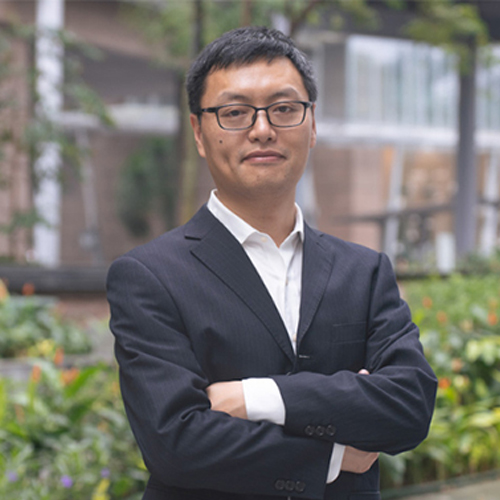
Dr Xi’s research focuses on developing new catalysts for renewable energy production to help combat global warming. His work involves characterising materials at the atomic level, which helps scientists understand how materials work together to produce chemical reactions. These catalysts improve the efficiency of industrial processes and help industries move closer to achieving net zero. More recently, he collaborated with scientists from NUS to extract hydrogen from water more efficiently to provide an affordable source of clean energy.
Dr Xi believes continuous innovation and collaboration is key to achieving improved outcomes for sustainability in Singapore and globally.
“To be a great scientist, you have to be passionate about your field of study. Read widely, network and collaborate.”
A*STAR celebrates International Women's Day

From groundbreaking discoveries to cutting-edge research, our researchers are empowering the next generation of female science, technology, engineering and mathematics (STEM) leaders.
Get inspired by our #WomeninSTEM
